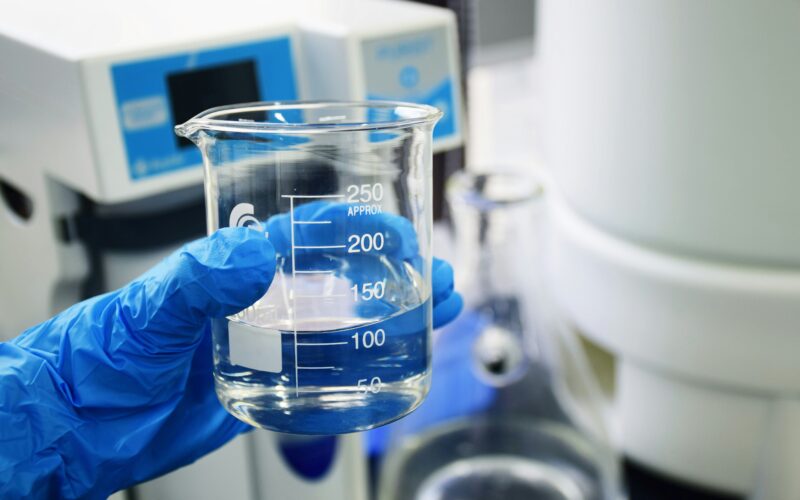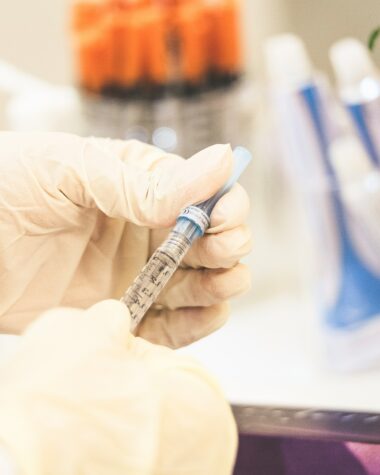Adicet Bio, Inc. (NASDAQ:ACET) is a clinical-stage biotechnology company focused on discovering and developing innovative allogeneic gamma delta T cell therapies designed to treat both autoimmune diseases and cancer. Headquartered in Redwood City, California with research operations in Boston, the company is advancing a proprietary platform that leverages the unique biology of gamma delta T cells, which naturally combine innate and adaptive immune properties. By engineering these cells with chimeric antigen receptors (CARs) and chimeric adaptors (CAds), Adicet aims to deliver potent, durable, and scalable “off-the-shelf” therapies that could overcome the limitations of autologous approaches.
The company’s origins trace back to its scientific vision of unlocking gamma delta T cells as a distinct cell type with strong anti-tumor activity, tissue-homing capabilities, and lower risk of graft-versus-host disease. With this foundation, Adicet has built a pipeline that addresses high-value indications where existing treatments often fail to provide long-term benefit. Its lead program, ADI-001, is being developed for autoimmune diseases such as systemic lupus erythematosus and lupus nephritis, with plans to expand into systemic sclerosis, idiopathic inflammatory myopathy, and other severe conditions. Another key program, ADI-270, is being advanced for metastatic and advanced clear cell renal cell carcinoma, a difficult-to-treat cancer where the need for novel therapies remains urgent.
Adicet has also built a leadership team with deep expertise in immuno-oncology, cell therapy development, and clinical trial execution. Under the guidance of President and CEO Chen Schor, the company has positioned itself at the forefront of allogeneic cell therapy innovation, emphasizing the potential of its platform to transform how immune-mediated diseases are treated. In addition to its scientific strengths, Adicet has secured Fast Track designations from the U.S. Food and Drug Administration for ADI-001 in systemic lupus erythematosus with extrarenal involvement and systemic sclerosis, reinforcing the recognition of its programs’ potential to address serious unmet needs.
With a cash position intended to fund operations into the second half of 2026, Adicet is pursuing a strategic roadmap that includes multiple upcoming clinical readouts and presentations at leading scientific conferences. The company’s long-term vision is to establish itself as a leader in the next generation of allogeneic CAR T therapies, combining innovation, scalability, and broad applicability across oncology and autoimmune markets.
Clinical Programs Still in Early Stage, Far From Commercialization
Adicet’s two lead programs, ADI-001 and ADI-270, are only in Phase 1 trials. ADI-001 is being tested in autoimmune diseases such as lupus nephritis (LN) and systemic lupus erythematosus (SLE), with plans to expand into systemic sclerosis, idiopathic inflammatory myopathy, stiff person syndrome, and ANCA-associated vasculitis later in 2025. ADI-270, meanwhile, is being studied in metastatic clear cell renal cell carcinoma (ccRCC), another high-risk and competitive oncology indication. While management has emphasized upcoming preliminary data by the second half of 2025, these readouts are still very early-stage, with limited patient numbers and short follow-up durations. The risk of inconclusive or negative results remains high, and the pathway to regulatory approval is likely years away at best.

CHECK THIS OUT: Saudi Arabia Wants CEL-SCI (CVM)’s Multikine Now! and Aligos Therapeutics (ALGS) Doubles Cash to $122.9M.
Heavy Dependence on Preliminary Data as Stock Catalyst
The company is openly framing the second half of 2025 as an “inflection point” with preliminary data from its two lead programs expected. This raises the stakes considerably because the company’s valuation and investor confidence are now highly dependent on a very small set of early clinical outcomes. Even modestly underwhelming data could send the stock tumbling, as has happened repeatedly with other small-cap biotech companies. Furthermore, promising preclinical findings presented at scientific meetings, such as SITC and ASGCT, often fail to translate into meaningful clinical efficacy in patients. The reliance on thin datasets for market-moving catalysts is a fundamental bearish signal.
Financial Losses Remain High Despite Expense Controls
Adicet reported a Q1 2025 net loss of $28.2 million, nearly identical to the $28.0 million loss in Q1 2024. Research and development expenses came in at $22.8 million, while general and administrative costs held at $7.1 million. Although R&D expenses were slightly reduced year-over-year due to lower external research and manufacturing costs, the company continues to burn cash at a rate that reflects little progress toward revenue generation. The net loss per share of $0.31 illustrates the ongoing dilution risk as the company seeks to fund its pipeline over several more years.
Cash Position Declining, Dilution Risk Growing
As of March 31, 2025, Adicet reported $150.4 million in cash and equivalents, down from $176.3 million at year-end 2024. While management claims this runway extends into the second half of 2026, the company’s consistent quarterly losses of ~$28 million imply that another capital raise is almost inevitable. With its stock trading at small-cap biotech levels, any future financing will likely be dilutive to shareholders. For a company with no commercial products and long development timelines, dilution risk is a major headwind that limits investor upside.
Competitive Pressures in Autoimmune and Oncology Markets
Both of Adicet’s primary markets—autoimmune diseases and oncology—are extremely competitive. In autoimmune disorders like lupus and systemic sclerosis, major pharmaceutical companies are already advancing biologics, JAK inhibitors, and cell therapies. In oncology, particularly renal cell carcinoma, there are multiple CAR-T, TCR, and bispecific antibody programs in development, many backed by larger companies with deeper financial resources and stronger clinical networks. Even if ADI-001 or ADI-270 demonstrate safety and modest efficacy, competing against entrenched incumbents and well-capitalized rivals will be an uphill battle.
Manufacturing and Scalability Risks With Allogeneic CAR T
While Adicet promotes the benefits of allogeneic gamma delta CAR T cells, manufacturing challenges remain a serious concern. Producing consistent, scalable, and safe off-the-shelf T cell therapies is a complex process that requires flawless quality control and regulatory compliance. Even slight deviations in cell potency or viability can delay clinical programs or raise red flags with regulators. The risk of costly setbacks in scaling up manufacturing is high, and the company’s reliance on contract development organizations means Adicet is exposed to external execution risks it cannot fully control.
Limited Near-Term Value Creation Opportunities
Given the early stage of development and the absence of late-stage or registrational trials, Adicet has very few near-term opportunities to create real shareholder value. Preclinical posters and oral presentations may generate short-lived interest, but institutional investors generally require late-stage clinical validation before assigning higher valuations. With ADI-001 and ADI-270 still years away from pivotal trials, the timeline for potential commercialization is far too long to justify current spending levels.
Governance and Strategic Uncertainty
The company recently appointed Michael Grissinger to its board of directors, highlighting its efforts to strengthen leadership with business development expertise. However, this move also signals the possibility that Adicet may be positioning itself for strategic alternatives, including partnerships, licensing, or eventual acquisition. While these paths could generate value in the long term, the uncertainty underscores the lack of confidence that Adicet will independently achieve commercial success.
Conclusion: Long Path Ahead With High Risk and Limited Visibility
Adicet Bio’s vision of using gamma delta T cell therapies to tackle autoimmune diseases and cancer is bold, but the risks far outweigh the potential rewards at this stage. The company remains years away from commercialization, continues to burn tens of millions each quarter, faces dilution risk, and must prove itself in crowded therapeutic areas against far stronger competitors. With preliminary Phase 1 data serving as the only near-term catalyst, investors face significant downside if results fall short of expectations. For those looking at the biotech sector, Adicet represents a high-risk bet with limited near-term visibility and a very real possibility of long-term shareholder dilution and underperformance.
READ ALSO: Exact Sciences (EXAS) Just Made Cancer Detection 100x Easier! and Soleno Therapeutics (SLNO): The Biotech Company That Could Make You Rich.








